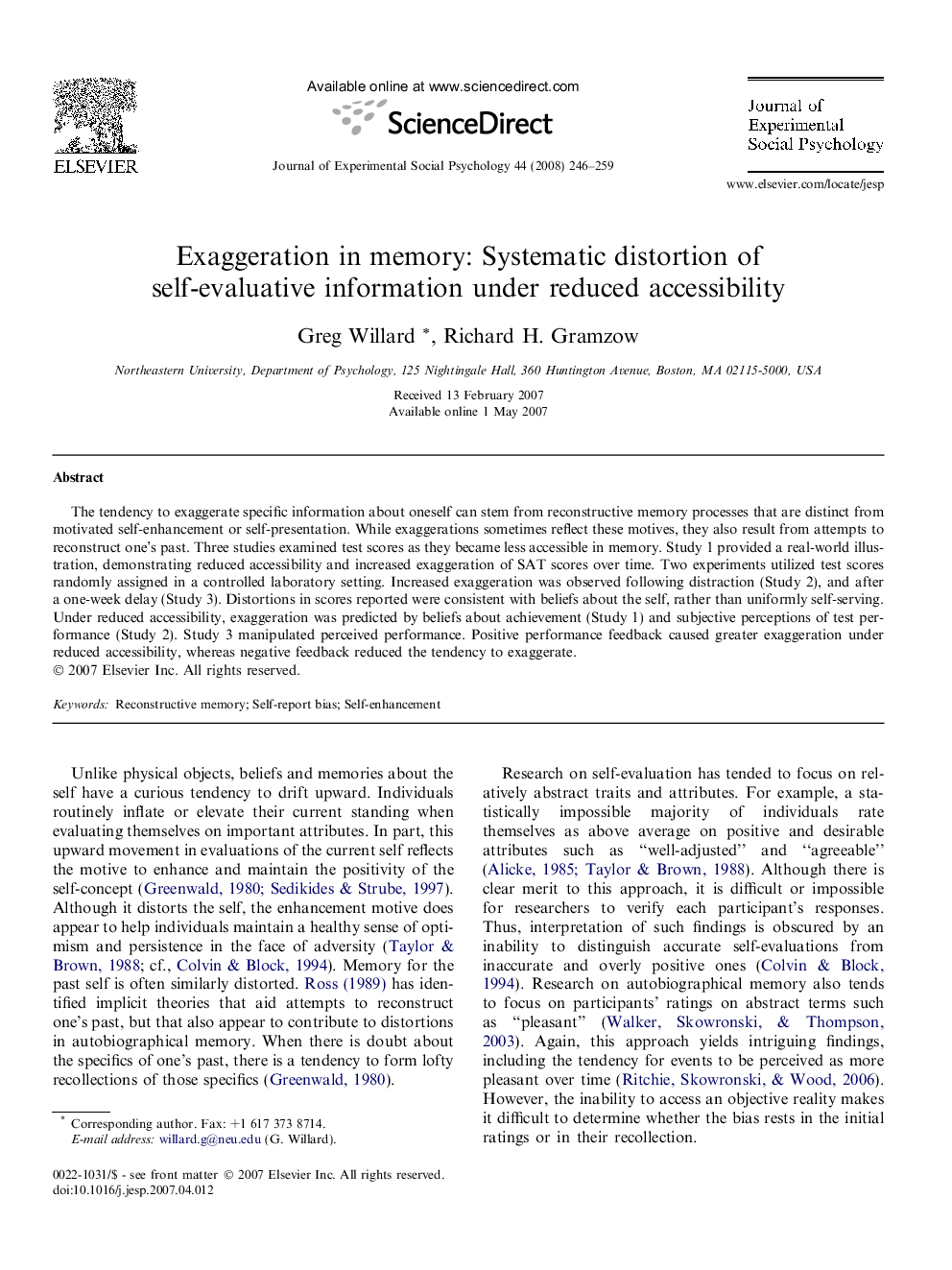| Article ID | Journal | Published Year | Pages | File Type |
|---|---|---|---|---|
| 948536 | Journal of Experimental Social Psychology | 2008 | 14 Pages |
The tendency to exaggerate specific information about oneself can stem from reconstructive memory processes that are distinct from motivated self-enhancement or self-presentation. While exaggerations sometimes reflect these motives, they also result from attempts to reconstruct one’s past. Three studies examined test scores as they became less accessible in memory. Study 1 provided a real-world illustration, demonstrating reduced accessibility and increased exaggeration of SAT scores over time. Two experiments utilized test scores randomly assigned in a controlled laboratory setting. Increased exaggeration was observed following distraction (Study 2), and after a one-week delay (Study 3). Distortions in scores reported were consistent with beliefs about the self, rather than uniformly self-serving. Under reduced accessibility, exaggeration was predicted by beliefs about achievement (Study 1) and subjective perceptions of test performance (Study 2). Study 3 manipulated perceived performance. Positive performance feedback caused greater exaggeration under reduced accessibility, whereas negative feedback reduced the tendency to exaggerate.
